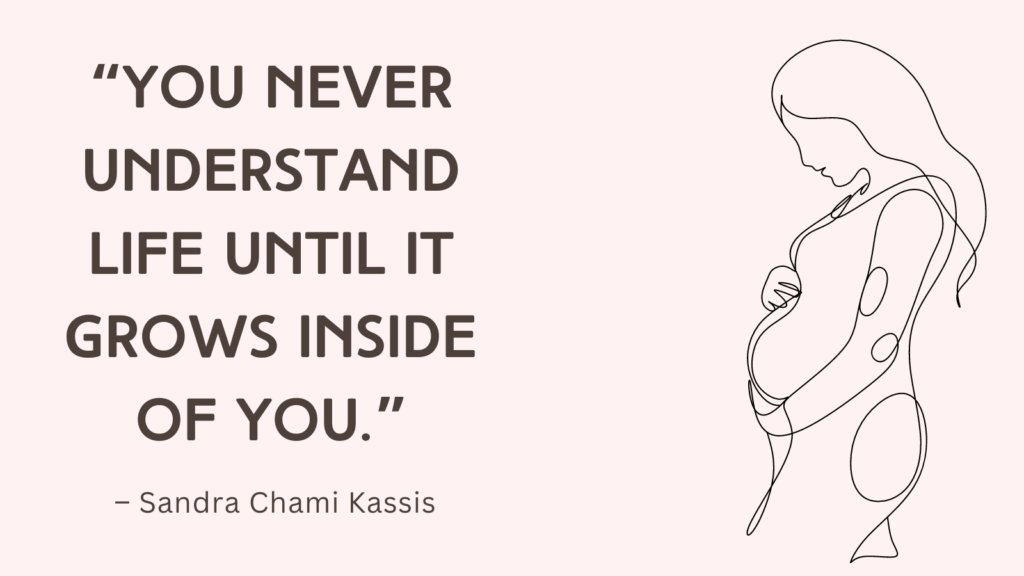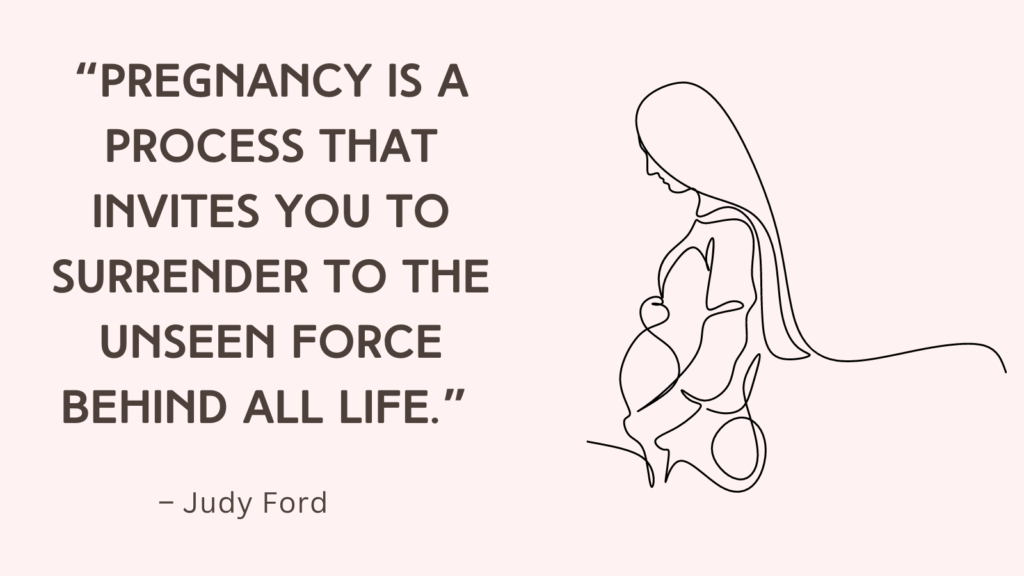The first trimester is a time of major transformation as your body begins to support a new life.
Some changes are visible, while others are subtle but equally significant.
Understanding these changes can help you feel more prepared and reassured as you navigate the early weeks of pregnancy.
What to Expect in the First Trimester Body Changes
1. Increased Fatigue
Why It Happens: Hormonal shifts, particularly a rise in progesterone, can make you feel more tired than usual. Your body is also working hard to create the placenta, which will nourish your baby throughout pregnancy.
What to Expect: Feeling fatigued is very common, especially in the early weeks. You may find yourself needing extra naps or sleeping longer at night.
How to Cope:
– Rest as much as you can and give yourself permission to slow down.
– Stay hydrated and eat balanced meals to keep energy levels stable.
Related: What To Wear To First Prenatal Appointment (& What To Avoid)
2. Breast Changes
Why It Happens: Hormones like estrogen and progesterone prepare your breasts for milk production, leading to changes in size, sensitivity, and appearance.
What to Expect: You may notice swelling, tenderness, or tingling in your breasts. Your areolas (the area around the nipples) might darken and increase in size.
How to Cope:
– Wear a supportive, comfortable bra, and consider a sleep bra for nighttime.
– Apply a warm compress to ease discomfort.
Related: Best +25 Pregnancy Journal Prompts
3. Morning Sickness
Why It Happens: The exact cause of morning sickness isn’t fully understood, but it’s thought to be linked to the rise in hormones like hCG and estrogen.
What to Expect: Nausea can strike at any time of day and may be mild or severe. Some women experience only occasional queasiness, while others may have more intense symptoms, including vomiting.
How to Cope:
– Keep snacks like crackers nearby and eat small, frequent meals.
– Ginger tea or ginger candies can help ease nausea.
– Stay hydrated, especially if vomiting occurs.
Related: Top 12 Tips On How To Deal With Morning Sickness At Work
4. Frequent Urination
Why It Happens: Increased blood flow to your kidneys and a growing uterus pressing on your bladder can make you feel the need to urinate more often.
What to Expect: You may find yourself heading to the bathroom more frequently, especially at night.
How to Cope:
– Avoid caffeine, which can increase urination.
– Stay hydrated, but try to limit liquids closer to bedtime.
5. Bloating and Constipation
Why It Happens: Higher levels of progesterone relax your muscles, including those in the digestive tract, slowing down digestion.
What to Expect: Bloating, gas, and constipation can be common first-trimester symptoms, making you feel fuller and more uncomfortable.
How to Cope:
– Drink plenty of water and incorporate high-fiber foods like fruits, vegetables, and whole grains.
– Light exercise, like walking, can help stimulate digestion.
Related: Best 70 Pregnancy Hacks (+Products Recommendation)
6. Food Cravings and Aversions
Why It Happens: Hormonal changes can influence your sense of taste and smell, which may lead to strong food cravings or aversions.
What to Expect: You may find yourself suddenly craving certain foods or feeling repulsed by others, even ones you once loved.
How to Cope:
– Listen to your body and try to satisfy cravings with healthy choices.
– Avoid foods that trigger nausea or don’t appeal to you right now.
Related: How To Use A Pregnancy Pillow?
7. Emotional Changes and Mood Swings
Why It Happens: Fluctuating hormones, fatigue, and the emotional impact of pregnancy can all contribute to mood swings.
What to Expect: You may feel happy, anxious, excited, or irritable at different times. It’s completely normal to have a mix of emotions in early pregnancy.
How to Cope:
– Practice self-care and relaxation techniques, such as gentle yoga or meditation.
– Talk to friends, family, or your partner about how you’re feeling.
Related: Best 7 Pregnancy Self Care Products
8. Increased Sense of Smell
Why It Happens: Pregnancy hormones can heighten your sense of smell, which may trigger nausea or aversions to certain scents.
What to Expect: Strong odors, even those that didn’t bother you before, might suddenly seem overwhelming.
How to Cope:
– Avoid strong-smelling foods or environments if they trigger nausea.
– Open windows to ventilate your space or try scent-free products.
9. Minor Spotting or Cramps
Why It Happens: Implantation of the fertilized egg can cause light spotting or mild cramping. The uterus is also expanding to make room for the growing baby.
What to Expect: Some women may notice light pink or brown spotting, typically around the time of a missed period, and mild cramping early on.
How to Cope:
– Rest if you experience cramps, and keep track of any spotting.
– If spotting is heavy or cramping is intense, contact your healthcare provider.
Related: Best 50 Activities For Pregnant Couples
10. Skin Changes
Why It Happens: Pregnancy hormones increase blood flow and oil production, which can lead to skin changes such as a pregnancy glow or occasional breakouts.
What to Expect: You may notice a natural glow to your skin, but some women experience acne or skin sensitivity as well.
How to Cope:
– Use gentle, pregnancy-safe skincare products.
– Stay hydrated to keep your skin balanced.
11. Mild Weight Gain (or Loss)
Why It Happens: Your weight may fluctuate in the first trimester as your body adjusts and due to factors like morning sickness, bloating, and changes in appetite.
What to Expect: Some women gain a few pounds in the first trimester, while others may lose weight due to nausea. Both are generally normal as long as you’re eating regularly.
How to Cope:
– Focus on balanced, nutrient-rich meals and listen to your body’s hunger cues.
– Talk to your healthcare provider if you’re concerned about weight gain or loss.
Related: Morning Sickness What To Eat When Nothing Sounds Good?
Conclusion
The first trimester brings many changes, some of which may surprise you.
Remember, each pregnancy is unique, and symptoms can vary from person to person.
If you ever feel unsure about a symptom or experience discomfort, don’t hesitate to reach out to your healthcare provider.




